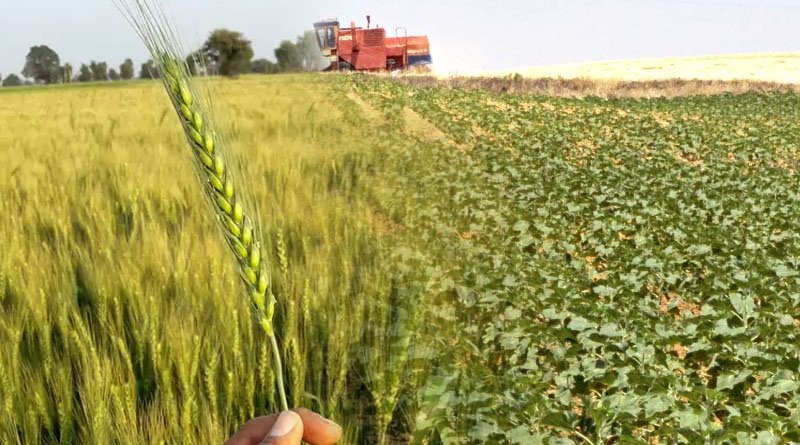Pakistan’s agriculture sector plays a vital role in the country’s economy, providing employment to millions of people and contributing significantly to GDP.

Pakistan’s agriculture sector plays a vital role in the country’s economy, providing employment to millions of people and contributing significantly to GDP. However, the sector faces numerous challenges, including declining soil health, water scarcity, and dependence on synthetic inputs. Composting offers a promising solution to these challenges. In this article, we will explore the benefits of composting for sustainable agriculture in Pakistan as well as the challenges and opportunities associated with its adoption.
Compost: The Key to Sustainable Agriculture in Pakistan
Composting is a natural process that turns organic waste into nutrient-rich soil amendments. In Pakistan, where agriculture is the backbone of the economy, compost has the potential to improve soil health, reduce greenhouse gas emissions, and promote sustainable agricultural practices.
Benefits of Compost in Pakistan’s Agriculture Sector:
The benefits of compost in Pakistan’s agriculture sector are numerous, including:
Improved Soil Health and Fertility:
Compost is a natural fertilizer that contains a balanced mix of nutrients such as nitrogen, phosphorus, and potassium. These nutrients are essential for plant growth and can help improve soil fertility. In addition, compost improves soil structure and texture, making it easier for plants to absorb nutrients and moisture.
Reduced Dependence on Synthetic Fertilisers and Pesticides:
Synthetic fertilizers and pesticides can have negative impacts on soil health, water quality, and human health. Compost can help reduce the use of these inputs, thereby promoting more sustainable agricultural practices. In addition, compost helps improve soil health, making plants more resistant to pests and diseases.
Increased Water Retention:
Compost has a high water-holding capacity, which means that it can help reduce the amount of water needed for irrigation. In regions with limited water resources, such as Pakistan, compost can play a crucial role in reducing water use in agriculture.
Improved crop yields:
Compost can improve crop yields by providing plants with the nutrients they need to grow and thrive. In addition, compost helps to improve soil health, making plants more resilient to environmental stressors such as drought and extreme temperatures.
Reduced soil erosion:
Compost helps to improve soil structure, which can help reduce soil erosion. This is particularly important in regions with steep slopes, where erosion can be a significant problem.
Challenges Facing Composting in Pakistan:
Despite the many benefits of composting, there are several challenges that need to be addressed in order to promote the widespread adoption of composting in Pakistan. These challenges include:
Lack of Awareness:
Many farmers in Pakistan are not aware of the benefits of composting, and may not understand how to make or use compost effectively. This can lead to a reluctance to invest in composting infrastructure and equipment.
Limited Infrastructure:
There is a lack of infrastructure for composting in Pakistan, including composting facilities, equipment, and trained personnel. This can make it difficult for farmers to produce compost on a large scale.
Limited Availability of Raw Materials:
There may be a limited availability of organic waste materials in some regions of Pakistan, which can make it difficult to produce compost on a large scale. This is particularly true in urban areas, where there is often a shortage of available land for composting.
Limited Market Demand:
There may be limited market demand for compost in Pakistan, which can make it difficult for farmers to sell their compost. This is particularly true in rural areas, where there may be a lack of awareness of the benefits of compost and a preference for synthetic fertilizers.
The Future of Composting in Pakistan:
Composting is a promising waste management strategy in Pakistan, especially given the country’s large agricultural and livestock sectors.
However, the practice of composting faces several challenges, including a lack of awareness and knowledge about composting, inadequate infrastructure and resources, and a limited market for compost products. Despite these challenges, the future of composting in Pakistan looks bright due to the following:
Initiatives to Promote Composting in Pakistan:
- Solid Waste Management Rules 2016: The government has initiated various programs and policies to promote composting, including the Solid Waste Management Rules 2016, which require local governments to promote the segregation of organic waste and encourage composting.
- Education and outreach programs to raise awareness about composting: Education and outreach programs are essential to raising awareness about composting and its benefits.
- Investment in infrastructure and resources for composting: There is a need to invest in infrastructure and resources for composting, such as composting bins, shredders, and turning machines.
The Future of Composting in Pakistan:
- Potential for significant growth in the composting industry: The future of composting in Pakistan looks bright, given the potential for significant growth in the composting industry.
- Possibility of creating a valuable resource for agriculture: Composting has the potential to turn organic waste into a valuable resource for agriculture and contribute to a more sustainable future.
- Need for continued efforts and collaboration to achieve a sustainable future: Despite the potential benefits of composting, the challenges facing the industry need to be addressed through continued efforts and collaboration between the government, private sector, and civil society. By working together, Pakistan can achieve a sustainable future through composting.
Conclusion
In conclusion, composting has the potential to revolutionize agriculture in Pakistan and address the country’s waste management challenges. Despite the current challenges faced by the industry, the future of composting in Pakistan looks bright, thanks to the various initiatives taken by the government, private sector, and civil society.
By investing in infrastructure and resources, raising awareness about composting, and promoting its use in agriculture, Pakistan can achieve a more sustainable future. Composting is not only an innovative solution to Pakistan’s waste management problem but also a way to enhance soil health, reduce greenhouse gas emissions, and promote a circular economy.
